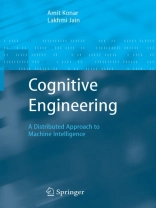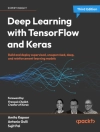What we profoundly witness these days is a growing number of human-centric systems and a genuine interest in a comprehensive understanding of their underlying paradigms and the development of solid and efficient design practices. We are indeed in the midst of the next information revolution, which very likely brings us into a completely new world of ubiquitous and invisible computing, Ambient Intelligent (AMI), and wearable hardware. This requires a totally new way of thinking in which cognitive aspects of design, cognitive system engineering and distributed approach play a pivotal role. This book fully addresses these timely needs by filling a gap between the two well-established disciplines of cognitive sciences and cognitive systems engineering. As we put succinctly in the preface, with the psychological perspective of human cognition in mind, “the book explores the computational models of reasoning, learning, planning and multi-agent coordination and control of the human moods”. This is an excellent, up to the point description of the book. The treatise is focused on the underlying fundamentals, spans across a vast territory embracing logic perspectives of human cognition, distributed models, parallel computing, expert systems, and intelligent robotics.
Table of Content
The Psychological Basis of Cognitive Modeling.- Parallel and Distributed Logic Programming.- Distributed Reasoning by Fuzzy Petri Nets: A Review.- Belief Propagation and Belief Revision Models in Fuzzy Petri Nets.- Building Expert Systems Using Fuzzy Petri Nets.- Distributed Learning Using Fuzzy Cognitive Maps.- Unsupervised Learning by Fuzzy Petri Nets.- Supervised Learning by a Fuzzy Petri Net.- Distributed Modeling of Abduction, Reciprocity, and Duality by Fuzzy Petri Nets.- Human Mood Detection and Control: A Cybernetic Approach.- Distributed Planning and Multi-agent Coordination of Robots.












